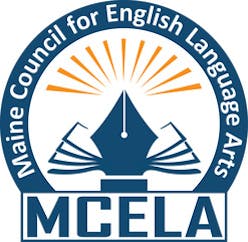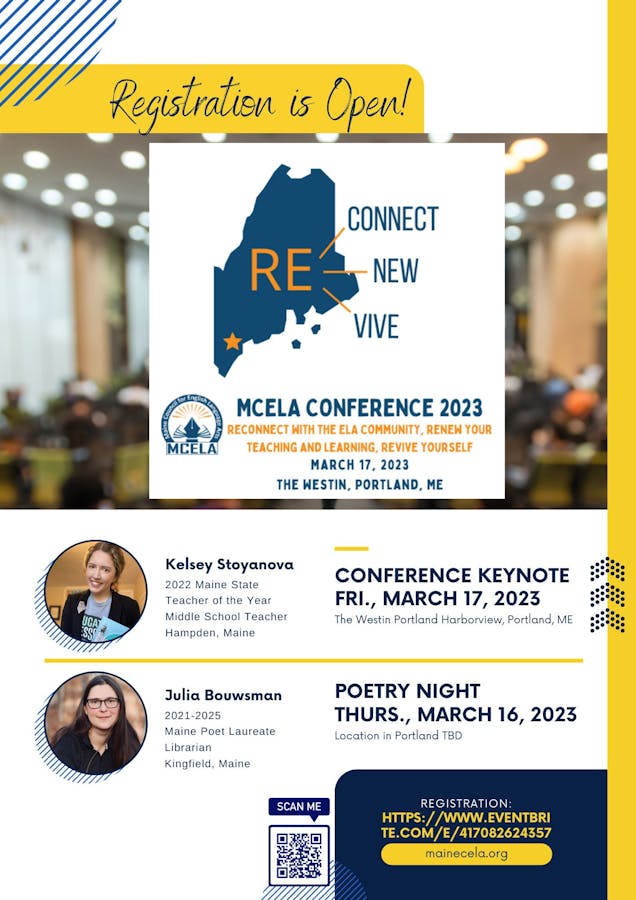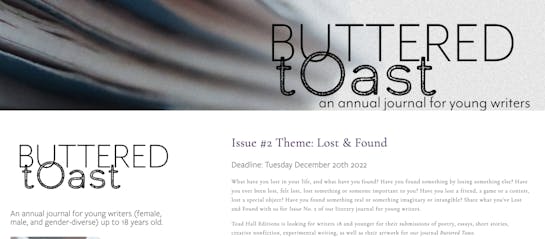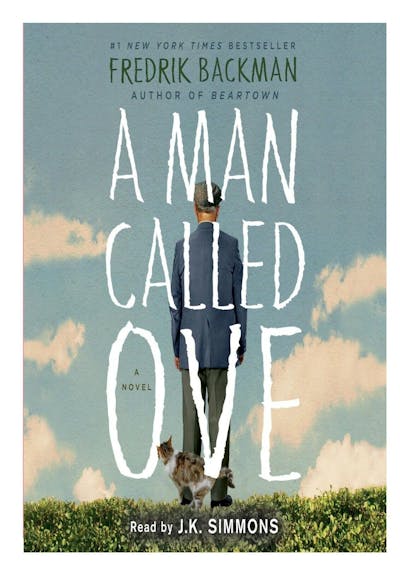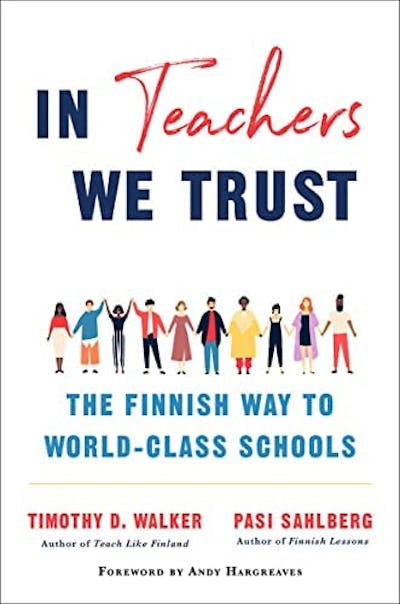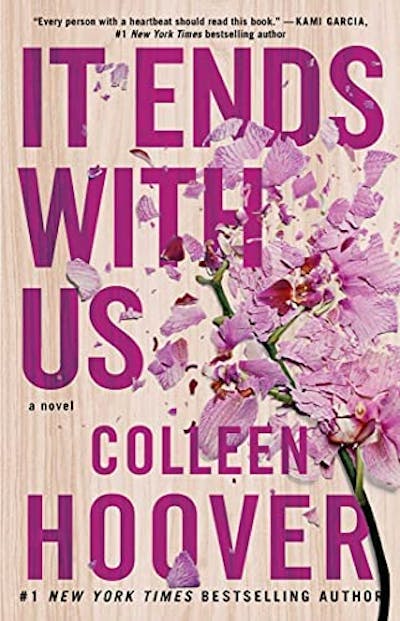MCELA Mattersprograms, resources, connections |
| |
|
 |
November 2022 It's hard to believe we are already a week into November. Did you know that in addition to being National Gratitude Month and National Native American Heritage Month, November is also a month for observing literacy? Literacy support in this newsletter: - Native American Heritage Month resources
- Conference registration
- Membership reminder and link
- Member Bre Allard shares how she was affirmed and challenged at a recent Penny Kittle conference
- A stipend opportunity for educators
- A writing opportunity for your students
- Bre Allard's book stack
This month, I am grateful to all educators who support literacy development in this state, grateful to the educators who established the Maine Council for English Language Arts as a non-profit affiliate of NCTE in the 1960s, and grateful to the 15 Executive Board members who are currently volunteering their time to support literacy and ELA educators. We've just selected our conference presenters this weekend and will be sharing the results soon. Our March 17th in-person conference is going to be a wonderful event to reconnect with the ELA community, renew your teaching and learning, and revive yourself. We hope you'll join us! Also, we'll be finishing up our online book study of Sparks in the Dark on November 15th with an authors' Q & A: Travis Crowder and Todd Nesloney. Keep an eye out, we might just open this session up to all to learn and grow from the authors. Grateful to you for reading,
Patti Forster, MCELA President maine.ela@gmail.com MCELA website: mainecela.org |
|
|
| Registration now to save your spot! In-person conference March 17, 2023 Poetry Night March 16, 2023 Portland, ME |
Authentic writing opportunity for your students: Writing contest for writers 18 and younger by Maine publishing company Toad Hall Editions. This year's theme is Lost & Found. The deadline for submissions is December 20, 2022. |
Stipend opportunity for ELA & Social Studies Teachers: |
| |
|
For an annual membership, we are asking for a donation of $30, and when you register for the conference, your registration includes membership for this school year. Membership benefits: - Free online programming
- Discounted conference and special events registration
- Access to member's only content on the MCELA website including previous year's programming recordings and documents
Did you know you can put the cost of membership for your entire English department into your district budget? When it's time to request funds from your district for next year's budget, consider adding a line for membership for MCELA for all ELA teachers in your school. |
Reading, Writing, & Thinking Matters |
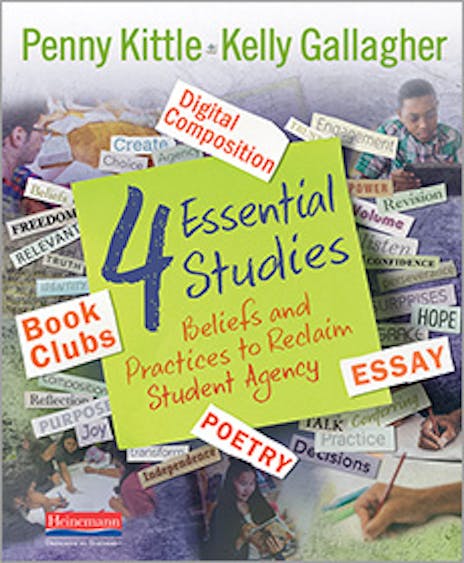 |
Essential Conversations with Penny Kittle By Bre Allard, MCELA Secretary Literacy Coach, Lewiston Middle School, Lewiston, ME On October 21, 2022, I had the privilege of attending a Penny Kittle conference at UMO. Approximately 80 ELA teachers, instructional coaches, and admin were in attendance. Penny shared teaching strategies from her newest book, 4 Essential Studies: Belief and Practices to Reclaim Student Agency (co-authored with Kelly Gallagher). This text focuses on Teaching the Essay as an Art Form, Book Clubs: The Best Teacher of Reading is the Reading, Poetry: The Potential for Unexpected Things, and Digital Composition: Crossing Genre Boundaries. Throughout the presentation, Penny shared examples of struggling students in her high school senior and college freshmen English classes over the years and how she helped each student shift their thinking, engage in their learning, and take charge of their academic success. After attending this powerful conference, my thinking was both affirmed and challenged. I was affirmed in my teaching practice to bring in more diverse books for students to select to read in book clubs or in my classroom library. As Kittle and Gallagher wrote, “We must change the dominance of white voices in English curriculum and expand the literary canon to include a broad range of experiences written by people who have lived them” (55). I will continue to look for ways to bring in more diverse voices into the ELA curriculum in my school.
The topic of poetry challenged my thinking during the conference. Poetry is tough to teach and tough for student engagement. Kittle and Gallagher challenge educators’ thinking about teaching poetry by first considering how teaching poetry has traditionally been done. They explain it by comparing teaching poetry to the food pyramid. What we do the most is on the bottom. Traditionally, this has been analyzing one poem and then another, and so on. Very little time (the top of the pyramid) is spent on students creating original poems. Kittle and Gallagher state, “We think the pyramid is upside down. Instead of grounding our unit in analysis and literary criticism, we fill the widest part of our poetry curriculum with reading, listening, and creating: standing immediately on the shoulders of poets. We start with playing, wondering, freewriting, reading, and listening to poems, creating notebook lists and phrases, and imitating” (82). I’m challenged to take some of the creative strategies Kittle and Gallagher suggest implementing in the classroom to help students see the potential in their own poetry creations, like making poems from the titles on the spines of books, finding words around them to create their own found poems, creating blackout poems, or lyric mash-up poem writing.
Penny Kittle wrote this message in my book when she autographed it, “Bre - I know you know the essentials… I hope this might push your thinking in new ways.” I can attest that it is and I highly recommend this book to all ELA teachers. |
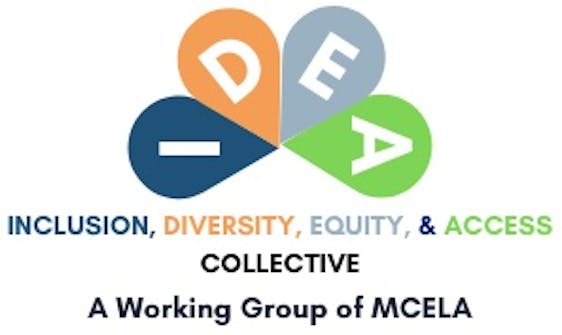 |
Resources for Native American Heritage Month: ✬ The Abbe Museum, celebrating the Wabanaki people of Maine, provides tours of the museum, classroom programs, and lesson plans in their Educator Hub. ✬ Listen to the WERU Community Radio archives of their radio programs Wabanaki Windows, Indigenous Voices, and Dawnland Signals. ✬ Read about Theresa Secord, traditional Penobscot basket maker, her art form, and her advocacy work in her essay for the "What Maine Craft Means to Me" series from the Maine Crafts Association. ✬ The University of Maine's Resource page on Native American Programs includes Native American information, Wabanaki studies, and a few other resources. ✬ The Maine DOE has a rich collection of resources on their Maine Native Studies Resources page. ✬ The National Museum of the American Indian provides student webinars, virtual field trips, lessons, and resources through its Native Knowledge 360◦ Education Initiative. ✬ The Wisdom of the Elders website hosts multimedia resources, curriculum, events, and environmental and other projects to promote Native American cultural sustainability. ✬ The First People website has a collection of nearly 1400 Native American Legends. ✬ NCTE's Read Write Think resource provides a database of searchable lessons for teachers, such as Making Connections to Myth and Folktale: The Many Ways to Rainy Mountain. ✬ PBS Learning Media has a vast amount of videos on the topic of Native Americans. ✬ Annenberg Learner provides free resources for K-12 educators, including the Native Voices section of the American Passages series. |
|
|
Here's what Bre Allard, MCELA Secretary, is reading right now: |
|
|
A grumpy yet loveable man finds his solitary world turned on its head when a boisterous young family moves in next door.
Meet Ove. He's a curmudgeon, the kind of man who points at people he dislikes as if they were burglars caught outside his bedroom window. He has staunch principles, strict routines, and a short fuse. People call him the bitter neighbor from hell, but must Ove be bitter just because he doesn't walk around with a smile plastered to his face all the time?
Behind the cranky exterior there is a story and a sadness. So when one November morning a chatty young couple with two chatty young daughters move in next door and accidentally flatten Ove's mailbox, it is the lead-in to a comical and heartwarming tale of unkempt cats, unexpected friendship, and the ancient art of backing up a U-Haul. All of which will change one cranky old man and a local residents' association to their very foundations. ~Goodreads summary |
| In the spring of 2018, thousands of teachers across the United States—in states like Oklahoma, Kentucky, and Arizona—walked off their jobs while calling for higher wages and better working conditions. Ultimately, these American educators trumpeted a simple request: treat us like professionals. Teachers in many other countries feel the same way as their US counterparts.
In Teachers We Trust presents a compelling vision, offering practical ideas for educators and school leaders wishing to develop teacher-powered education systems. It reveals why teachers in Finland hold high status, and shows what the country’s trust- based school system looks like in action.
Pasi Sahlberg and Timothy D. Walker suggest seven key principles for building a culture of trust in schools, from offering clinical training for future teachers to encouraging student agency to fostering a collaborative professionalism among educators. In Teachers We Trust is essential reading for all teachers, administrators, and parents who entrust their children to American schools. ~Goodreads summary |
| Sometimes it is the one who loves you who hurts you the most.
Lily hasn’t always had it easy, but that’s never stopped her from working hard for the life she wants. She’s come a long way from the small town in Maine where she grew up — she graduated from college, moved to Boston, and started her own business. So when she feels a spark with a gorgeous neurosurgeon named Ryle Kincaid, everything in Lily’s life suddenly seems almost too good to be true.
Ryle is assertive, stubborn, maybe even a little arrogant. He’s also sensitive, brilliant, and has a total soft spot for Lily. And the way he looks in scrubs certainly doesn’t hurt. Lily can’t get him out of her head. But Ryle’s complete aversion to relationships is disturbing. Even as Lily finds herself becoming the exception to his “no dating” rule, she can’t help but wonder what made him that way in the first place.
As questions about her new relationship overwhelm her, so do thoughts of Atlas Corrigan — her first love and a link to the past she left behind. He was her kindred spirit, her protector. When Atlas suddenly reappears, everything Lily has built with Ryle is threatened. ~Goodreads summary |
|
|
| stay tuned via social media |
| |
|
| |
